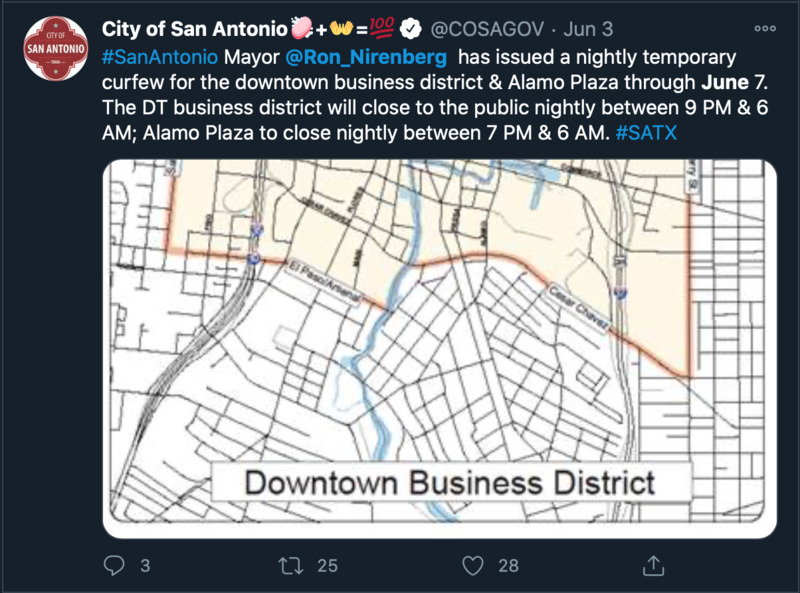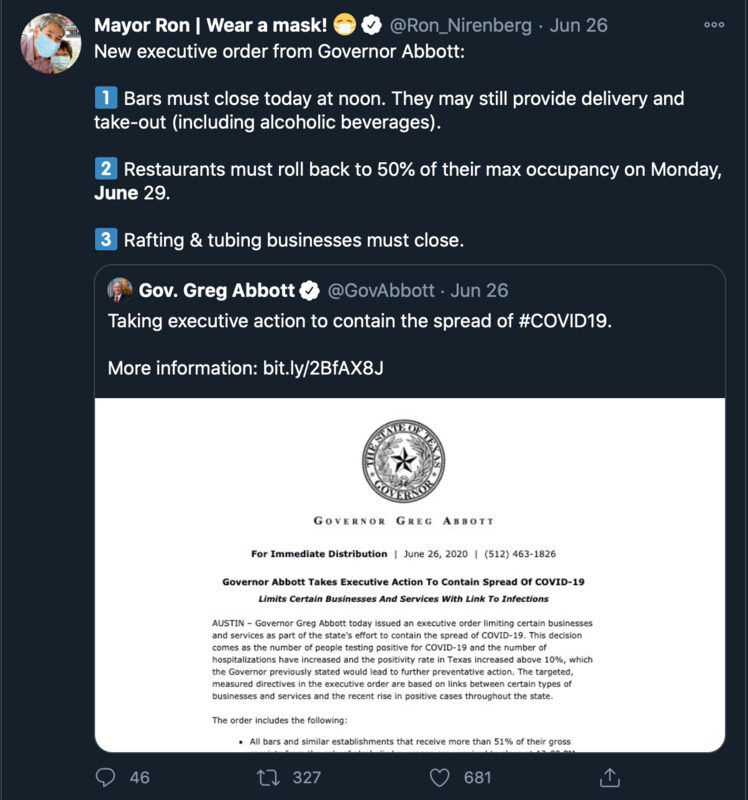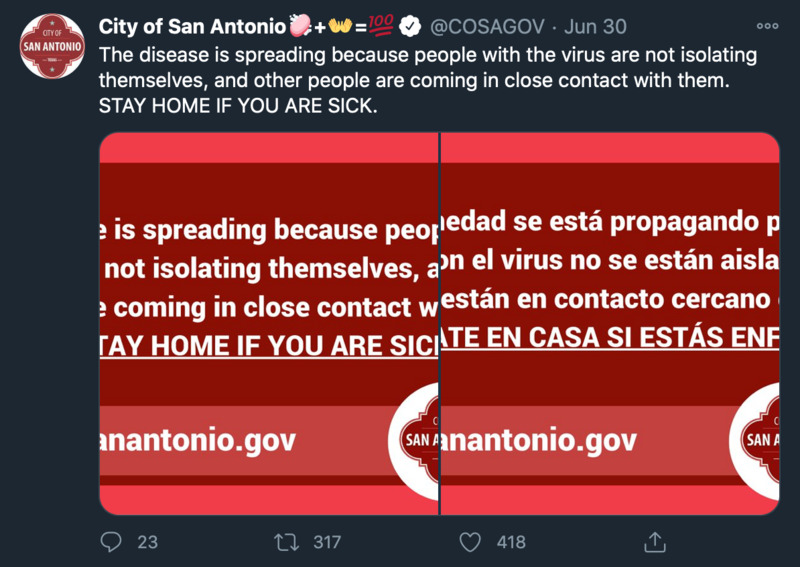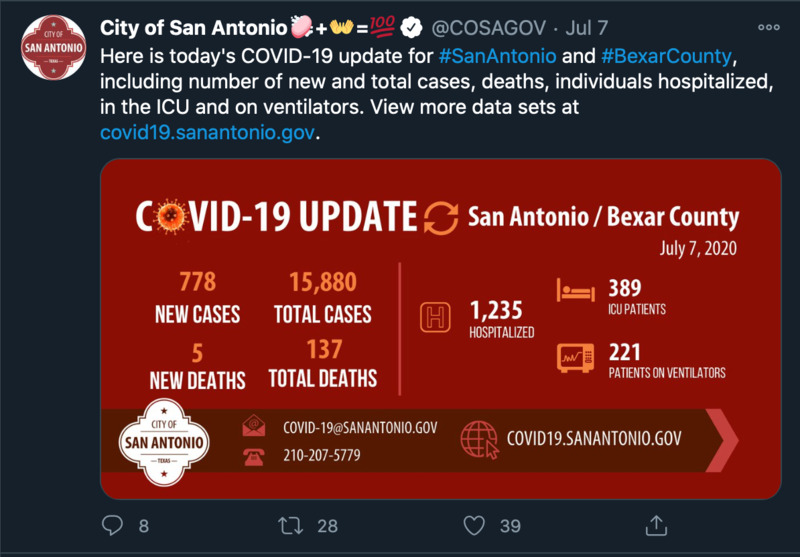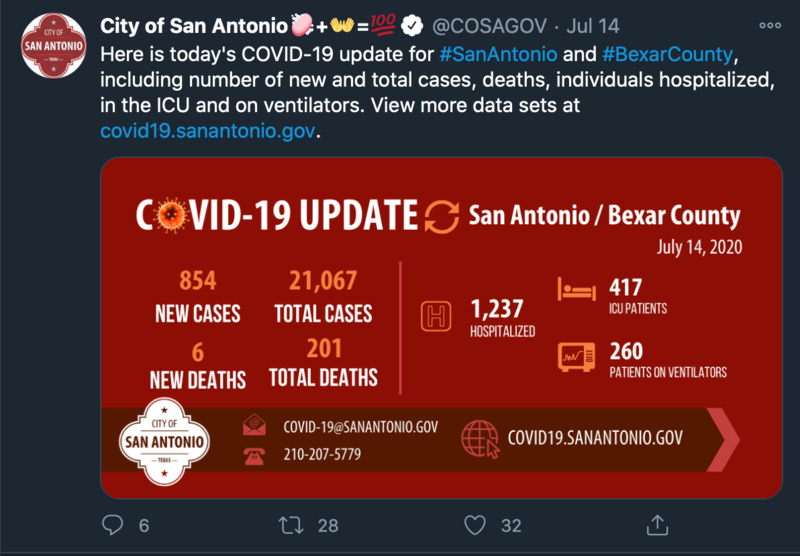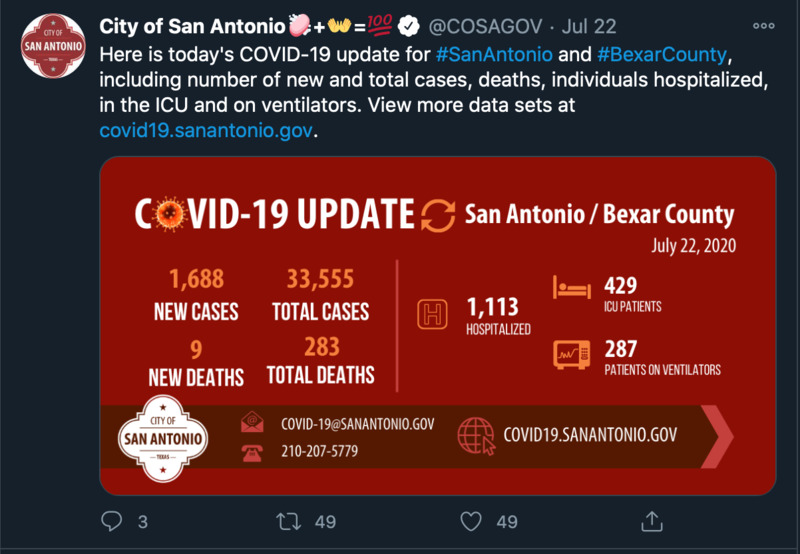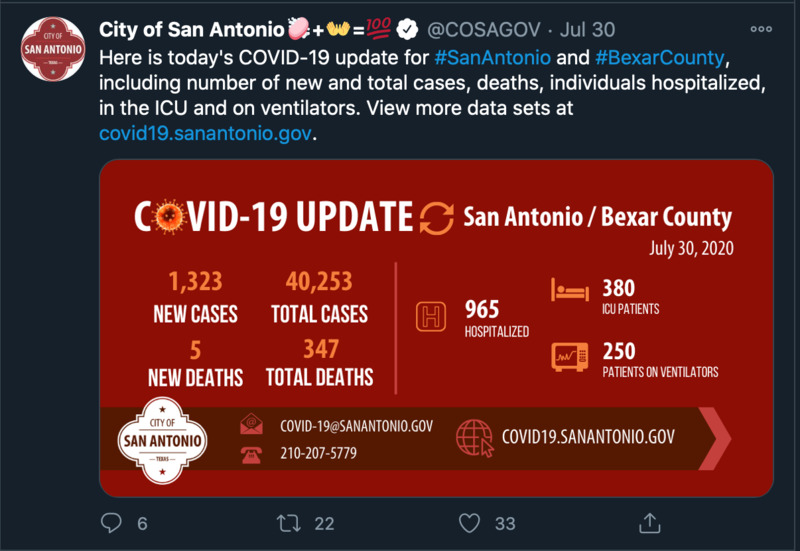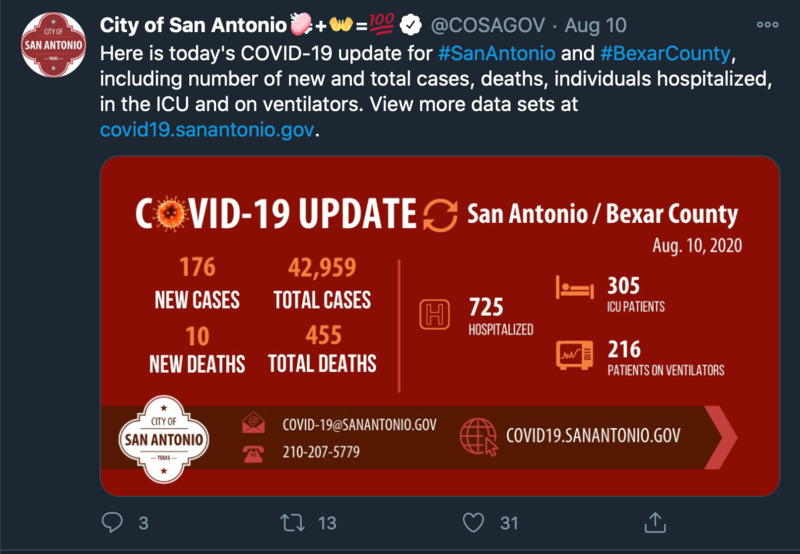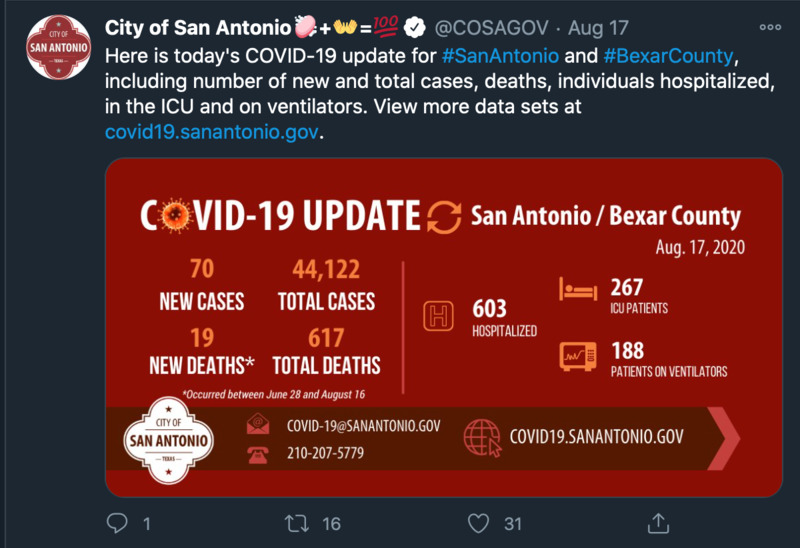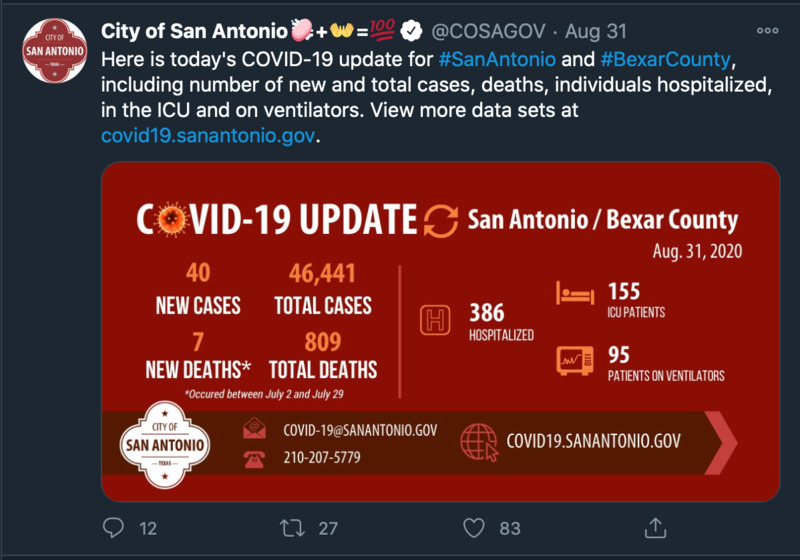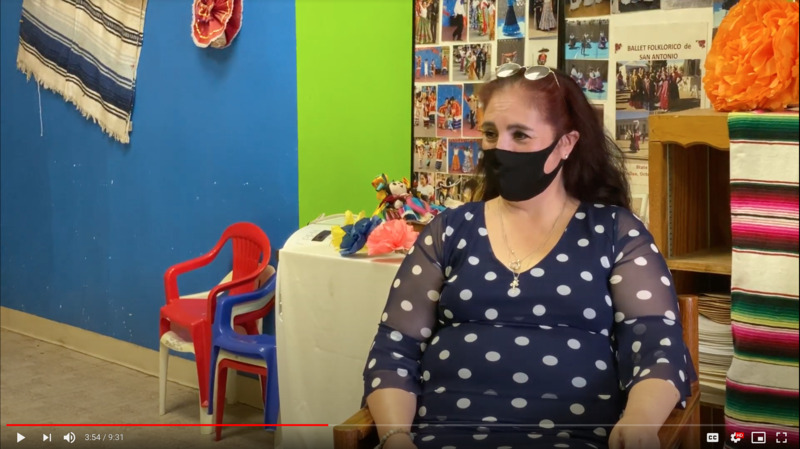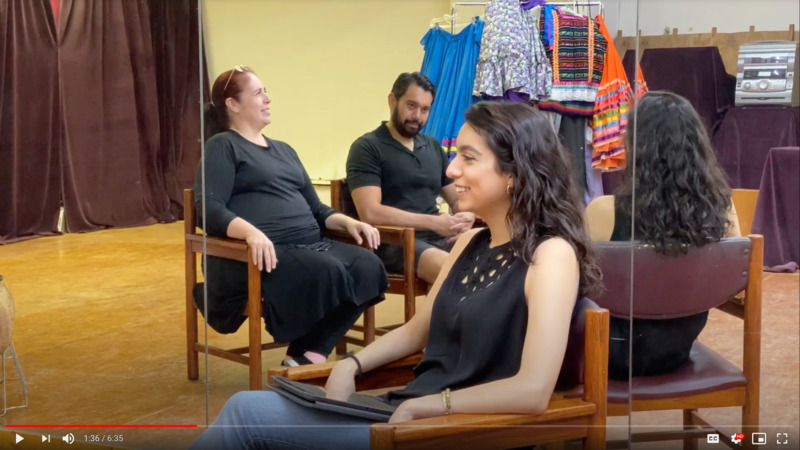Item
M.A. in Zoom pt. 2: The Myth of Summer
Title (Dublin Core)
M.A. in Zoom pt. 2: The Myth of Summer
Description (Dublin Core)
This entry is the second part to capturing what the first six months of my graduate school experience was like. I’m a graduate student in the public history program at St. Mary’s University in San Antonio, Texas. I, like many students throughout all levels of education, felt a dramatic shift during or following spring break 2020. As the world began to catch on fire, I was just starting to piece together my final project which would enable me to graduate with my M.A. degree. Despite the chaos, I managed to survive the rest of the semester, and actually get a good head start on my project. I achieved two new job opportunities and reunited with my boyfriend after going two months without seeing each other. Things were going really well for me and I found a sense of confidence I hadn’t felt in three months. A confidence that might’ve crossed the line into arrogance.
This is when I actually got serious about the pandemic. I chose to forget that just because things were going well in my world, didn’t mean things were going well in the real world.
I, along with many of my fellow citizens, gave in to the idea that the south Texas heat would significantly curb the spread of the virus. As Texas began to open up, I began going out–not just for academic purposes but also for my own selfish desires to feel myself again. I returned to my local gym. I ate out (in doors) at restaurants. I went to an outdoor bar with my parents (one that was not abiding by the six feet separation policy). I heard the medical experts’ warnings against the loosening of restrictions; I was aware of the slowly but still increasing COVID cases in the city, but chose to act selfishly.
This selfishness transferred over to my academic goals. I was blinded by my ambition (or anxiety) to hit the ground running with my capstone. Maybe I knew that after a certain point, it would no longer be safe nor socially acceptable to meet with people outside of my immediate community. The second and third photos were taken from the first sets of oral histories I conducted with my community partners, the Ballet Folklórico de San Antonio. This is Bonnie Ramos and Mark Molina, the head creative directors of the Ballet Folklórico de San Antonio. Prior to these interviews, I had to meet with these leaders to plan out these interviews. We were all fully ready to conduct in-person oral histories not only with these two, but also their friends and family members. In the second photo, we were more conscious of the virus as you can see Ms. Ramos is wearing a mask. However, in the following interview with Bonnie and Mark, done just [two] weeks later, you can see that we chose to let our guards down (falling in line with the rest of the San Antonio, and overall Texas, community). In both photos we made sure to keep a distance between us, but we did not measure exactly six feet. Off camera, we also made sure to interact at a distance, however, we all chipped in to set the interview setting.
In between interviews I came down with a case of strep throat. I had to get tested for COVID and the results came two days later, which means my family and I held our breaths for two days. Thankfully I was negative, but strep really kicked my butt. I thought to myself, “If this is what strep feels like, I don’t want to know what COVID feels like.” The doctor was very sure that I only had strep because I had no other symptoms (such as respiratory difficulties). However, COVID is different for everyone – so I heard.
I began to drown myself in COVID statistics which made me feel even worse; but also made me snap and understand that I cannot be my control freak self in the midst of a pandemic. Included are some images of COVID statistics in San Antonio from the point that I contracted strep until the end of August.
I thought about all the times I had gone out, regardless of being aware that I shouldn’t; I thought of all the people I had interacted with and how ashamed I’d me if I would have to call them; I thought of what I could potentially be putting my parents through because they have underlying conditions (diabetes and asthma). After a few days on antibiotics I was alright, but this was a wakeup call and my Ballet Folklórico project came to pause.
Then Fourth of July hit, and San Antonio really milked the reduced restrictions. In the following weeks, San Antonio saw a spike in COVID-19 and the city promptly regressed back to prior restrictions. I cancelled my gym membership, my family cancelled our annual trip to the beach, and abstained from interacting with some friends and family. My household became a little blue; I felt a mixture of shame, fear, and frustration (towards myself and the state of Texas). As a public historian, I felt like I failed the community I serve by acting in my self-interests. Public historians share a larger responsibility to treat out community justly and with respect. However, I chose to contribute to the problem that I knew was still there; I gave in to my selfish desire for “normalcy” and potentially put my community partners at risk. Luckily, neither of us (myself, Bonnie & Mark, nor my camera man) have experienced any COVID-19 symptoms following our interviews nor up until now.
Throughout the rest of the summer, all of the oral histories I conducted for my capstone were done via Zoom. My project was slowly transitioning to become a digital project, but I’ve come to see this as a strength and necessary change. It does not seem like Texas will have this virus completely under control, and many individuals will be hesitant to interact physically or outside their homes. Creating something digital will meet the needs of individuals while still taking precautions, as well as be more accessible to other researchers beyond San Antonio. COVID had made me acquaint myself with advanced-ish technology that will make all my projects throughout my career more accessible and therefore more equitable
This is when I actually got serious about the pandemic. I chose to forget that just because things were going well in my world, didn’t mean things were going well in the real world.
I, along with many of my fellow citizens, gave in to the idea that the south Texas heat would significantly curb the spread of the virus. As Texas began to open up, I began going out–not just for academic purposes but also for my own selfish desires to feel myself again. I returned to my local gym. I ate out (in doors) at restaurants. I went to an outdoor bar with my parents (one that was not abiding by the six feet separation policy). I heard the medical experts’ warnings against the loosening of restrictions; I was aware of the slowly but still increasing COVID cases in the city, but chose to act selfishly.
This selfishness transferred over to my academic goals. I was blinded by my ambition (or anxiety) to hit the ground running with my capstone. Maybe I knew that after a certain point, it would no longer be safe nor socially acceptable to meet with people outside of my immediate community. The second and third photos were taken from the first sets of oral histories I conducted with my community partners, the Ballet Folklórico de San Antonio. This is Bonnie Ramos and Mark Molina, the head creative directors of the Ballet Folklórico de San Antonio. Prior to these interviews, I had to meet with these leaders to plan out these interviews. We were all fully ready to conduct in-person oral histories not only with these two, but also their friends and family members. In the second photo, we were more conscious of the virus as you can see Ms. Ramos is wearing a mask. However, in the following interview with Bonnie and Mark, done just [two] weeks later, you can see that we chose to let our guards down (falling in line with the rest of the San Antonio, and overall Texas, community). In both photos we made sure to keep a distance between us, but we did not measure exactly six feet. Off camera, we also made sure to interact at a distance, however, we all chipped in to set the interview setting.
In between interviews I came down with a case of strep throat. I had to get tested for COVID and the results came two days later, which means my family and I held our breaths for two days. Thankfully I was negative, but strep really kicked my butt. I thought to myself, “If this is what strep feels like, I don’t want to know what COVID feels like.” The doctor was very sure that I only had strep because I had no other symptoms (such as respiratory difficulties). However, COVID is different for everyone – so I heard.
I began to drown myself in COVID statistics which made me feel even worse; but also made me snap and understand that I cannot be my control freak self in the midst of a pandemic. Included are some images of COVID statistics in San Antonio from the point that I contracted strep until the end of August.
I thought about all the times I had gone out, regardless of being aware that I shouldn’t; I thought of all the people I had interacted with and how ashamed I’d me if I would have to call them; I thought of what I could potentially be putting my parents through because they have underlying conditions (diabetes and asthma). After a few days on antibiotics I was alright, but this was a wakeup call and my Ballet Folklórico project came to pause.
Then Fourth of July hit, and San Antonio really milked the reduced restrictions. In the following weeks, San Antonio saw a spike in COVID-19 and the city promptly regressed back to prior restrictions. I cancelled my gym membership, my family cancelled our annual trip to the beach, and abstained from interacting with some friends and family. My household became a little blue; I felt a mixture of shame, fear, and frustration (towards myself and the state of Texas). As a public historian, I felt like I failed the community I serve by acting in my self-interests. Public historians share a larger responsibility to treat out community justly and with respect. However, I chose to contribute to the problem that I knew was still there; I gave in to my selfish desire for “normalcy” and potentially put my community partners at risk. Luckily, neither of us (myself, Bonnie & Mark, nor my camera man) have experienced any COVID-19 symptoms following our interviews nor up until now.
Throughout the rest of the summer, all of the oral histories I conducted for my capstone were done via Zoom. My project was slowly transitioning to become a digital project, but I’ve come to see this as a strength and necessary change. It does not seem like Texas will have this virus completely under control, and many individuals will be hesitant to interact physically or outside their homes. Creating something digital will meet the needs of individuals while still taking precautions, as well as be more accessible to other researchers beyond San Antonio. COVID had made me acquaint myself with advanced-ish technology that will make all my projects throughout my career more accessible and therefore more equitable
Date (Dublin Core)
Creator (Dublin Core)
Contributor (Dublin Core)
Event Identifier (Dublin Core)
Partner (Dublin Core)
Type (Dublin Core)
screenshots
Controlled Vocabulary (Dublin Core)
English
Education--Universities
English
Health & Wellness
English
Government Local
English
Social Distance
Curator's Tags (Omeka Classic)
Contributor's Tags (a true folksonomy) (Friend of a Friend)
Collection (Dublin Core)
Date Submitted (Dublin Core)
10/06/2020
Date Modified (Dublin Core)
10/12/2020
10/23/2020
11/03/2020
Coverage (Dublin Core)
San Antonio, Texas
Language (Dublin Core)
English

